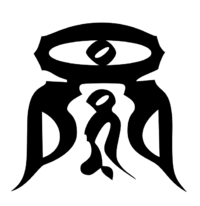Wuism: Difference between revisions
(Created page with "{{WIP}} {{Template:Wuism sidebar}}") |
mNo edit summary |
||
| (2 intermediate revisions by the same user not shown) | |||
| Line 1: | Line 1: | ||
{{ | {{Under Construction}} | ||
{{Template:Wuism sidebar}} | {{Template:Wuism sidebar}} | ||
'''Wuism''' ([[Zhenian language|Zhenian]]: 무교/武敎) is a {{wp|polytheism|polytheist}} {{wp|religion}} originating from eastern [[Zhenia]] and widely practiced worldwide. While specific parts of beliefs can vary by denomination, almost all tracts of Wuism currently follow the teachings and practices of [[Jinshan-gong]], as well as elements from various cultures and traditions found in Zhenia that have been formally consolidated as the practices of Wuism. | |||
Common beliefs found in almost all Wuist denominations include a tripartite view of the space-time continuum, a three-deity system revolving around such views of the space-time continuum, a cyclic system of life and death, and the worship of war. While war as a deity in principle is said to loom over to provide protection to all of those who engage in war and favor the victors, some tracts, including [[Zhenian Wuism]], have indoctrinated nationalistic views into the testaments of the faith, claiming that all three deities stand over their respective peoples to protect them in times of crises and harm. | |||
==Defining characteristics== | |||
==Diversity and Unity== | |||
===Tripartite views of the space-time continuum=== | |||
==Beliefs== | |||
===Deities=== | |||
While all tracts of Wuism are in principle {{wp|polytheism|polytheistic}}, the world view of Wuism revolves around three primary deities. [[Dhemir]], the goddess of the sun, fire and life, represent the beginning of the cycle as well as the past, signifying the origins of the world and how it came to be as it is today. [[Shinmir]], as the god of the heavens, war, storms and prowess, primarily oversee the present-day world, being responsible for upholding the orderly state of the present space-time continuum. [[Gaonmir]], the god of the seas, death and the afterlife, represent both the end and restart of the cycle of space and time. | |||
Later theologians interpreting of Jinshan-gong's teachings and practices during the [[Shindan dynasty]] have claimed that Dhemir, Shinmir and Gaonmir are all in fact different manifestations of one deity, only in different times; while they have not been officially recognized as official interpretations of the teachings of Jinshan-gong, such interpretations have been adopted in some denominations that exist today, including [[Faith of Wolmyeong]]. | |||
==Institutions== | |||
==History== | |||
==See Also== | |||
{{Template:INWU}} | |||
Latest revision as of 17:17, 5 April 2020
| Part of a series on |
| Wuism |
|---|
 |
| Religion in the INWU |
| Beliefs |
| See also |
|
Wuism (Zhenian: 무교/武敎) is a polytheist religion originating from eastern Zhenia and widely practiced worldwide. While specific parts of beliefs can vary by denomination, almost all tracts of Wuism currently follow the teachings and practices of Jinshan-gong, as well as elements from various cultures and traditions found in Zhenia that have been formally consolidated as the practices of Wuism.
Common beliefs found in almost all Wuist denominations include a tripartite view of the space-time continuum, a three-deity system revolving around such views of the space-time continuum, a cyclic system of life and death, and the worship of war. While war as a deity in principle is said to loom over to provide protection to all of those who engage in war and favor the victors, some tracts, including Zhenian Wuism, have indoctrinated nationalistic views into the testaments of the faith, claiming that all three deities stand over their respective peoples to protect them in times of crises and harm.
Defining characteristics
Diversity and Unity
Tripartite views of the space-time continuum
Beliefs
Deities
While all tracts of Wuism are in principle polytheistic, the world view of Wuism revolves around three primary deities. Dhemir, the goddess of the sun, fire and life, represent the beginning of the cycle as well as the past, signifying the origins of the world and how it came to be as it is today. Shinmir, as the god of the heavens, war, storms and prowess, primarily oversee the present-day world, being responsible for upholding the orderly state of the present space-time continuum. Gaonmir, the god of the seas, death and the afterlife, represent both the end and restart of the cycle of space and time.
Later theologians interpreting of Jinshan-gong's teachings and practices during the Shindan dynasty have claimed that Dhemir, Shinmir and Gaonmir are all in fact different manifestations of one deity, only in different times; while they have not been officially recognized as official interpretations of the teachings of Jinshan-gong, such interpretations have been adopted in some denominations that exist today, including Faith of Wolmyeong.
